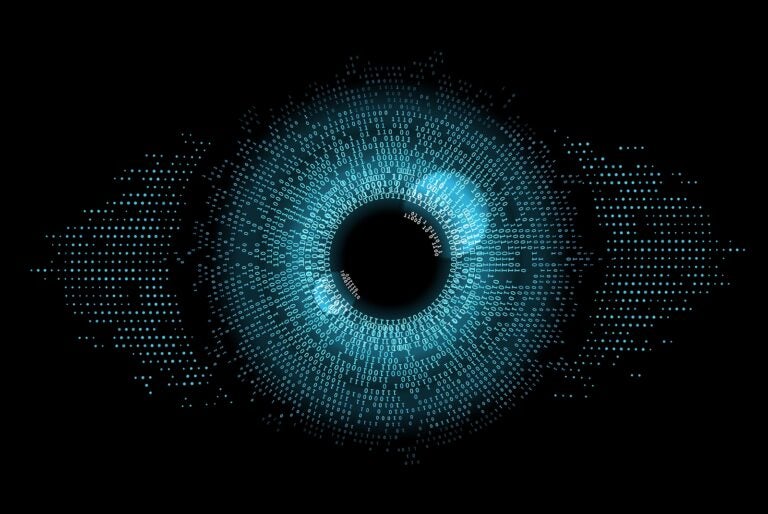Why the Internet Knows You Better Than You Know Yourself
On this episode, we look inside the secretive world of big data, digital footprints, and what that data reveals about us.
Listen 48:06
Digital eye, data network and cyber security technology, vector background. Futuristic tech of virtual cyberspace and internet secure surveillance, binary code digital eye or safety scanner
It’s happened to all of us — you’re talking about a new show you want to watch, or texting about taking a trip, or even just thinking about some shoes you want to buy. And suddenly, an ad for that exact thing pops up in your browser.
It can feel like someone or something is spying on us — but these targeted ads are based on something much more prosaic: our digital footprints. These unique trails of data are constantly being created, based on our online activities, from our browsing histories to our social media posts to the things we buy — even who we message and where we go. All of which gets recorded and analyzed by algorithms that, together, paint a detailed picture of our lives, personalities, and psychological profiles.
Sometimes, the psychological targeting can be helpful — other times, it can feel like a snoop, tracking our every move and influencing our choices. On this episode, we talk with computational scientist Sandra Matz about her new book, “Mindmasters: The Data-Driven Science of Predicting and Changing Human Behavior.” We explore why the internet may know us better than we know ourselves, how that information is being used, and how we can use it to our advantage.
ALSO HEARD
- Psychological targeting is nothing new. In this piece by reporter Liz Tung, we look at the early days of Facebook, and how it transformed the college experience.
WHYY is your source for fact-based, in-depth journalism and information. As a nonprofit organization, we rely on financial support from readers like you. Please give today.






